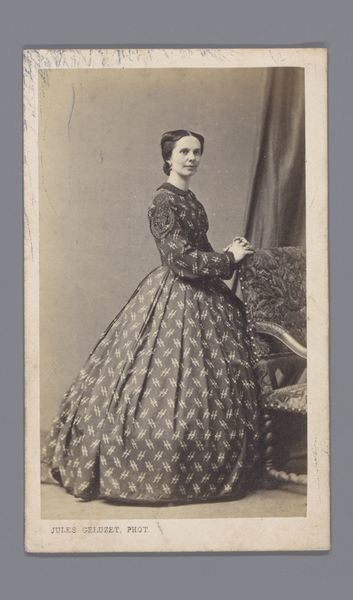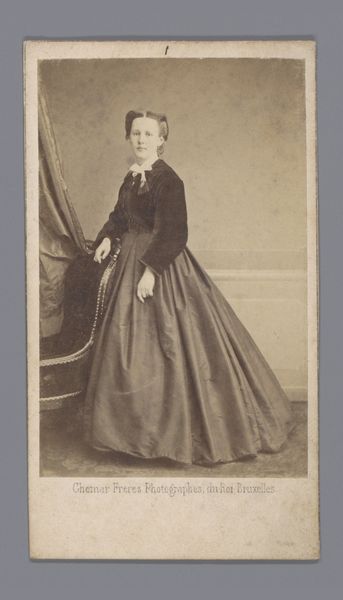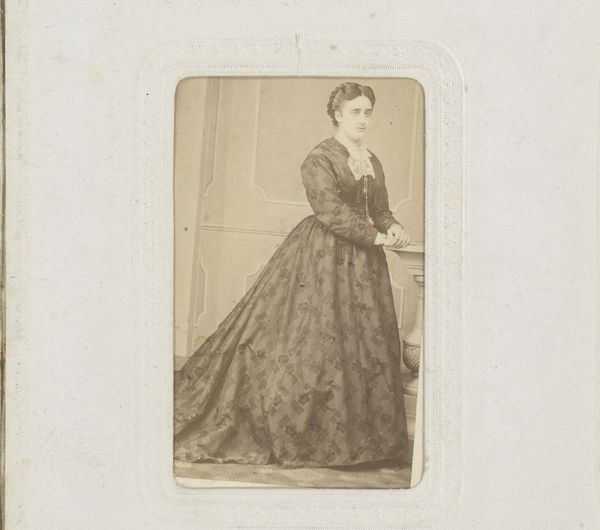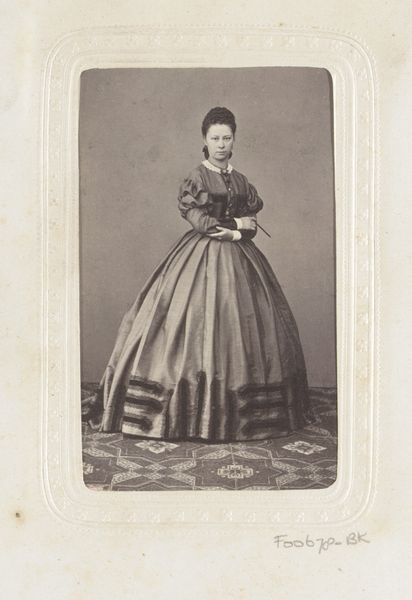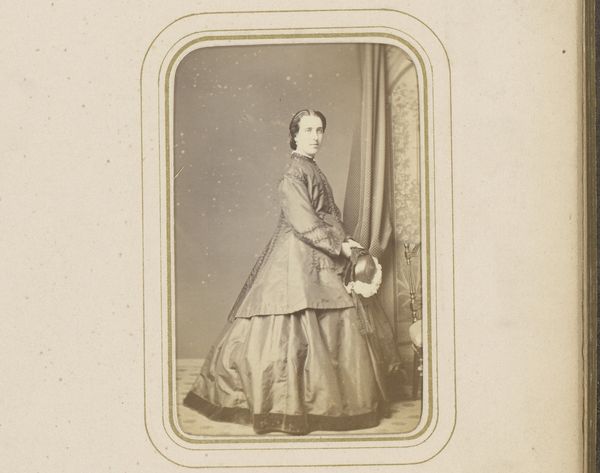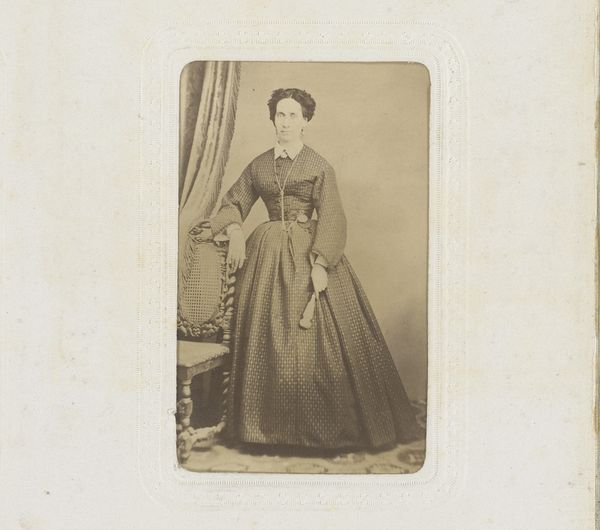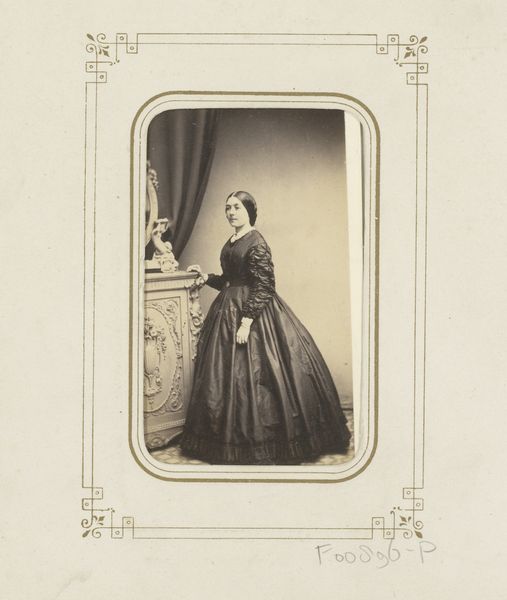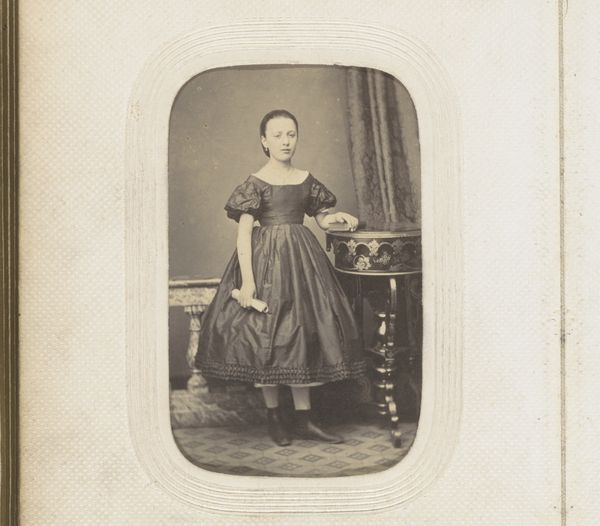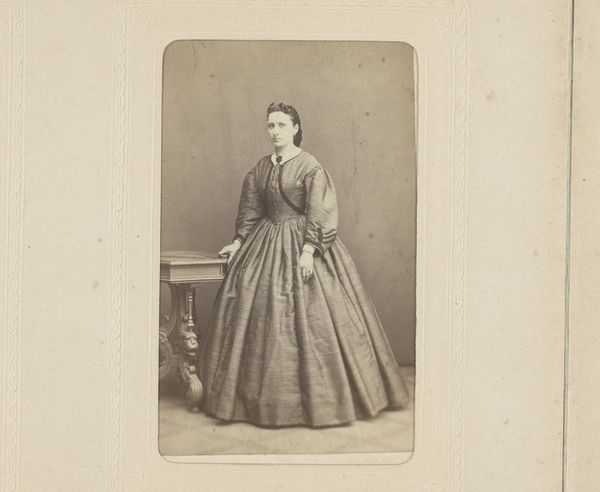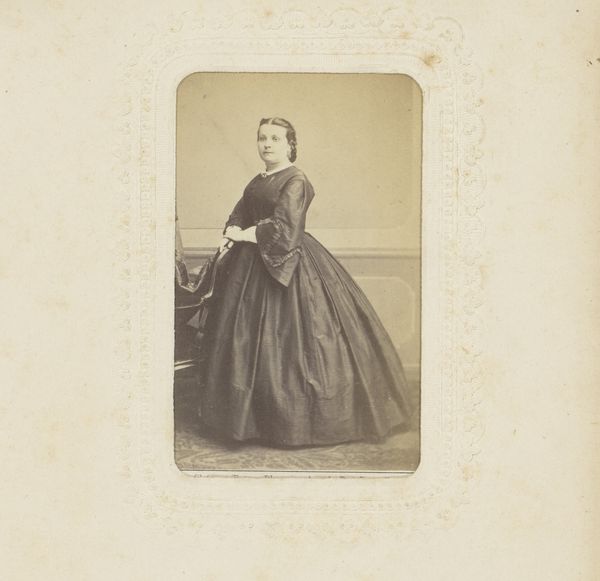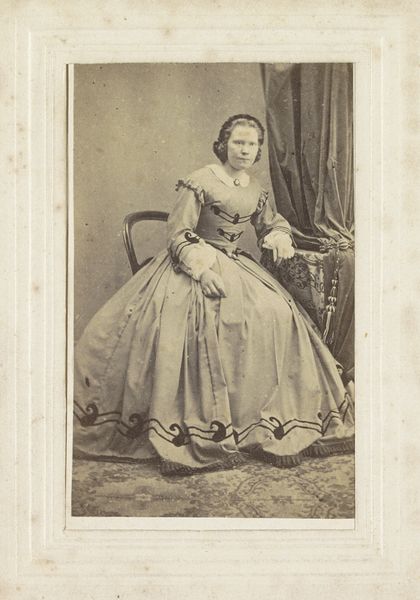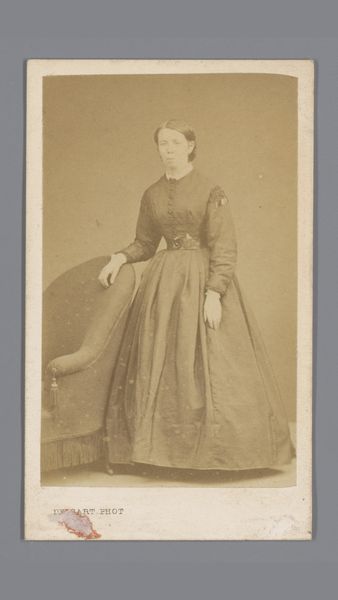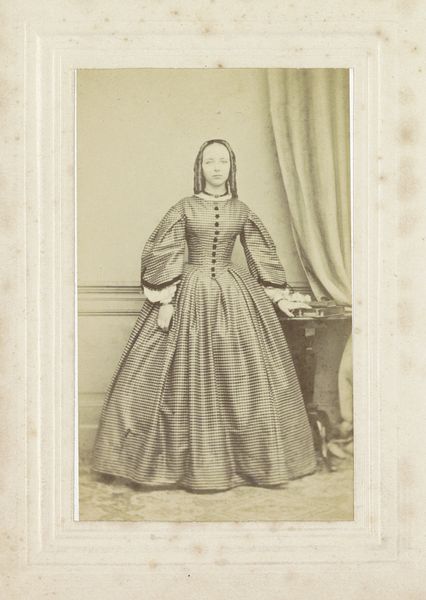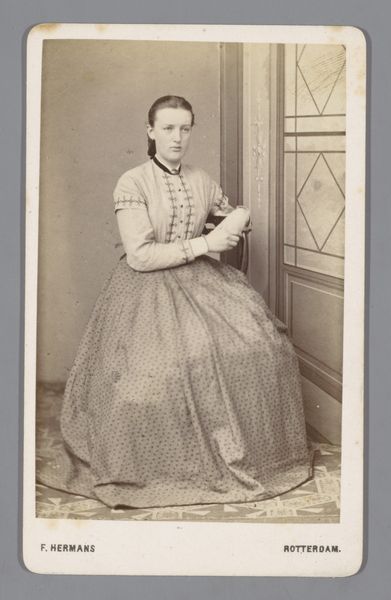
#
light pencil work
#
wedding photograph
#
photo restoration
#
pencil sketch
#
retro 'vintage design
#
archive photography
#
historical photography
#
old-timey
#
yellow element
#
19th century
Dimensions: height 87 mm, width 53 mm
Copyright: Rijks Museum: Open Domain
Curator: This is "Portret van een staande vrouw," a portrait dating back to 1860-1870, attributed to Georg Knittel & Comp. Editor: She looks so constrained, even forlorn. The severe hairstyle, the formal dress—everything speaks of restriction. It gives a haunting glimpse into 19th-century expectations of women. Curator: Exactly. Think about the broader societal context: what it meant to be a woman during the Victorian era, her restricted rights, and her limited agency. This portrait embodies those constraints, and may allude to a wedding photo. Editor: The detail in the dress, however, speaks to a certain status. It's intricately patterned, suggesting wealth and social standing within the symbolic language of the image. This photo served as an aspirational representation. Curator: Absolutely. Her dress serves as an armor—ornate but restrictive. In our contemporary perspective, we need to consider her agency within the constraints she faced. How might she have negotiated power and autonomy, or perhaps subverted those very expectations through dress? Editor: I see a fascinating layering of cultural meanings. The column could symbolize the woman's resilience. However, it seems very possible that the picture signifies the role she’s expected to play in society, becoming like decor and lacking substance. The ornament seems superficial rather than a powerful totem. Curator: That is an insightful approach, reading beyond its surface. By analyzing the interplay between this visual vocabulary and understanding societal restrictions, we can reconstruct her lived experiences in more truthful terms. This interplay helps to shed light on how we look at and relate to historical narratives and challenge pre-existing power imbalances, giving voices back to marginalized communities, right? Editor: Definitely! I began with the image's symbols, then recognized how important historical context is to the cultural and personal identity within the portrait. Thanks! Curator: The picture prompts many reflections. It offers an intersection between aesthetic experience and social-political awareness to interpret it meaningfully.
Comments
No comments
Be the first to comment and join the conversation on the ultimate creative platform.
